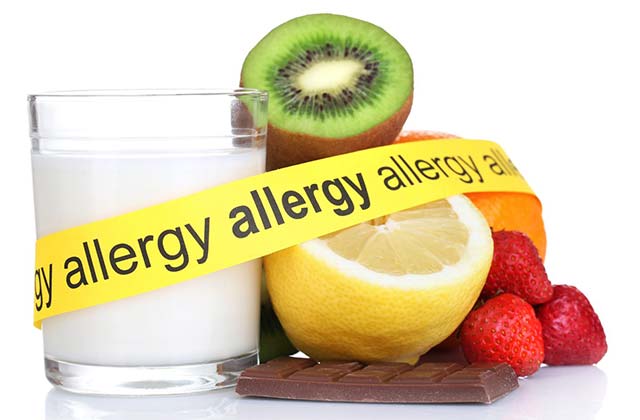Is food allergy holding you back? Almost 2.6 million Canadians are suffering from food allergies. Of this number, about 20% are children. Most of us consider this as a public health issue. People who are living with this condition need to manage it daily. That is why it is important to raise awareness on understanding this disease, how it should be treated, and how you can cope with it.
According to health authorities, severe allergic reactions or anaphylactic reactions happen when the body’s immune system mistakes common substances like, pollen, hair, or food as something that could harm the body. These substances are referred to as allergens and they cause the body to release chemicals which will then trigger the allergic reactions that we know.
Common symptoms include skin reactions like swelling, itchiness, redness, and hives; respiratory reactions like shortness of breath, chest pain, nasal congestion, tightening of the throat or cough; and gastrointestinal reactions like diarrhea, vomiting, and cramps. A cardiovascular reaction is a severe type of allergic response, characterized by bluish skin color, weakened pulse, loss of consciousness, dizziness, or shock.
In Canada, the health authorities have identified various products as priority food allergens, meaning, they are the substances that mostly draw out allergic responses. Public health agencies and medical associations and communities have identified the following food as such: peanuts, mustard, eggs, crustaceans, mollusks, milk, fish, tree nuts, wheat, sesame seeds, sulphites, and soy.
Now, there is no known cure for food allergies. But how can you manage allergic reactions? Here are five ways:
1. Be careful when cooking.
If you are cooking at home, cook the allergen-free dish first and make sure that there is no cross-contamination of food. You can avoid this by having two sets of kitchen equipment so that you will not mix allergens when preparing dishes. The allergic person must also have a separate set of eating utensils. It would be a disaster if the knife used to spread peanut butter will be used by a family member who is severely allergic to peanuts. Wash utensils and dishes properly with dishwashing soap to scrub off traces of allergens.
If you can, cook meals on your own so that you can make sure that there is no unholy ingredient in there. If the allergic person is your child, cook his or her meal yourself. Also, instruct your child to avoid swapping food with classmates at school. Prepare your child’s favorite meals so that you can be assured that he or she would keep the food to herself.
2. Be vigilant about reading food labels.
Even if you are tired of doing it all the time, do not stop being meticulously thorough about reading food labels. Remember, your safety is the number one priority. Thankfully, health authorities have mandated that food packages must indicate allergen information. So, it is up to you to do your part and check the labels. Even if it is a product that you frequently buy, examine it every time. You cannot be too sure when the manufacturers would change the ingredients.
3. Inform others about your condition.
If possible, explain the implications of your allergic response to your close friends and family, especially if you are visiting their houses or if they are sharing some food with you. Explain what they should do during an allergic attack.
If you are attending a seminar or a work-related event, inform the event organizers or your officemates about your condition so they can prepare separate allergen-free meals for you.
4. Always bring your own medicine.
Save yourself. If you are prone to allergies, always bring your trusty anti-histamine or anti-allergy medicines. Ideally, have at least two doses in your bag, ready for action when the right moment comes. If you have not yet been diagnosed and prescribed with medicine, you can contact your local online doctor Vancouver. If you are stuck at home during the Covid-19 outbreak, you can also consult online clinics to get prescription medicine refills.
5. Have a support group and be an advocate.
Again, food allergy is a public health concern. Do not hesitate to spread awareness regarding this condition. Normalize speaking up and inquiring about what is in your food and explain why people should not get offended if you are acting this way.
Surround yourself with the right people too. Join support groups online or in your local community. Finding the right collective whom you can discuss your situation with can sometimes be useful and therapeutic.
Management of food allergies is no easy task but it can be achieved if you put your mind into it. Know more about this condition and let others understand it too. Learn how to manage your allergic responses and avoid consuming harmful allergens. Do not let a life with allergies slow you down.

